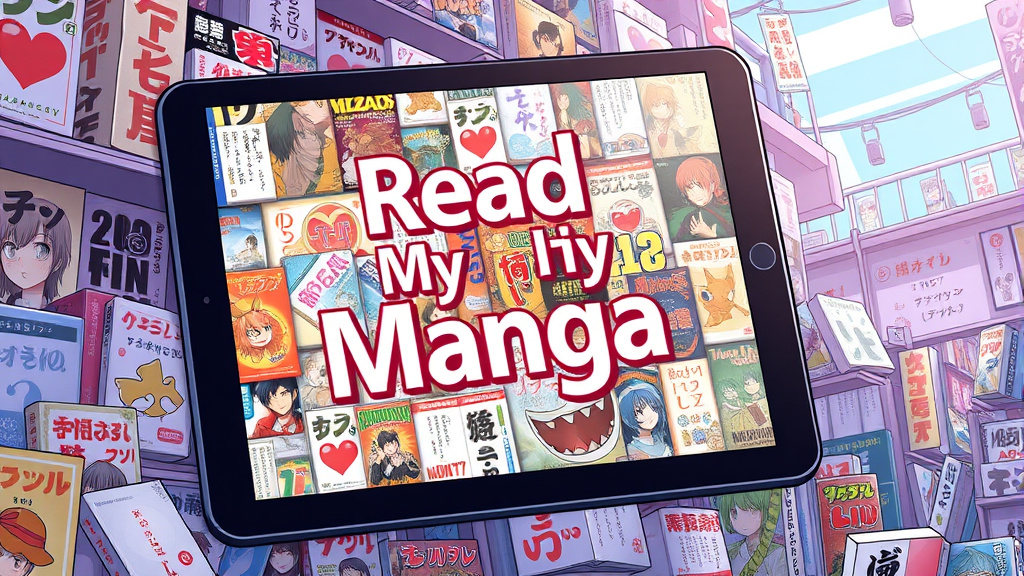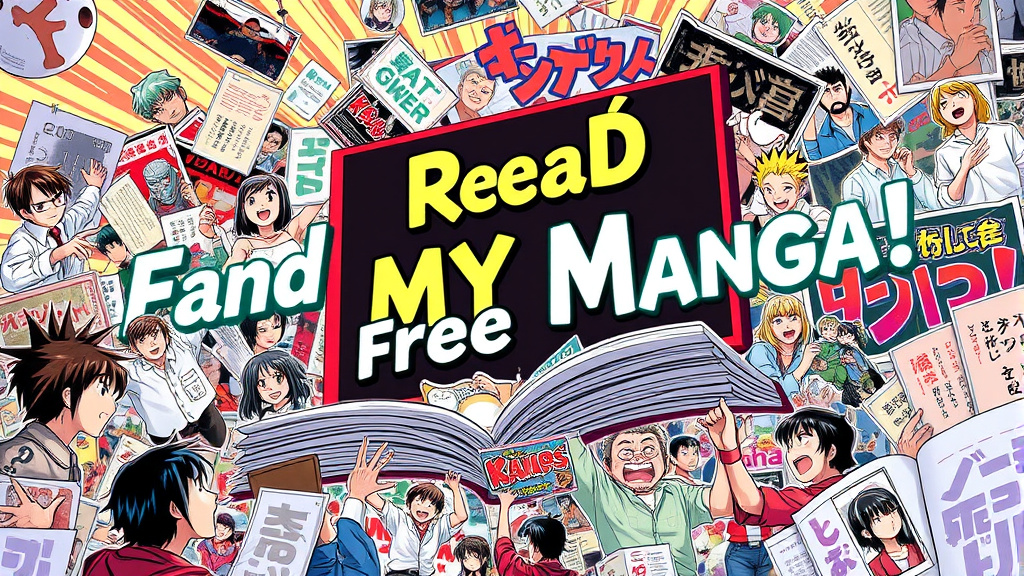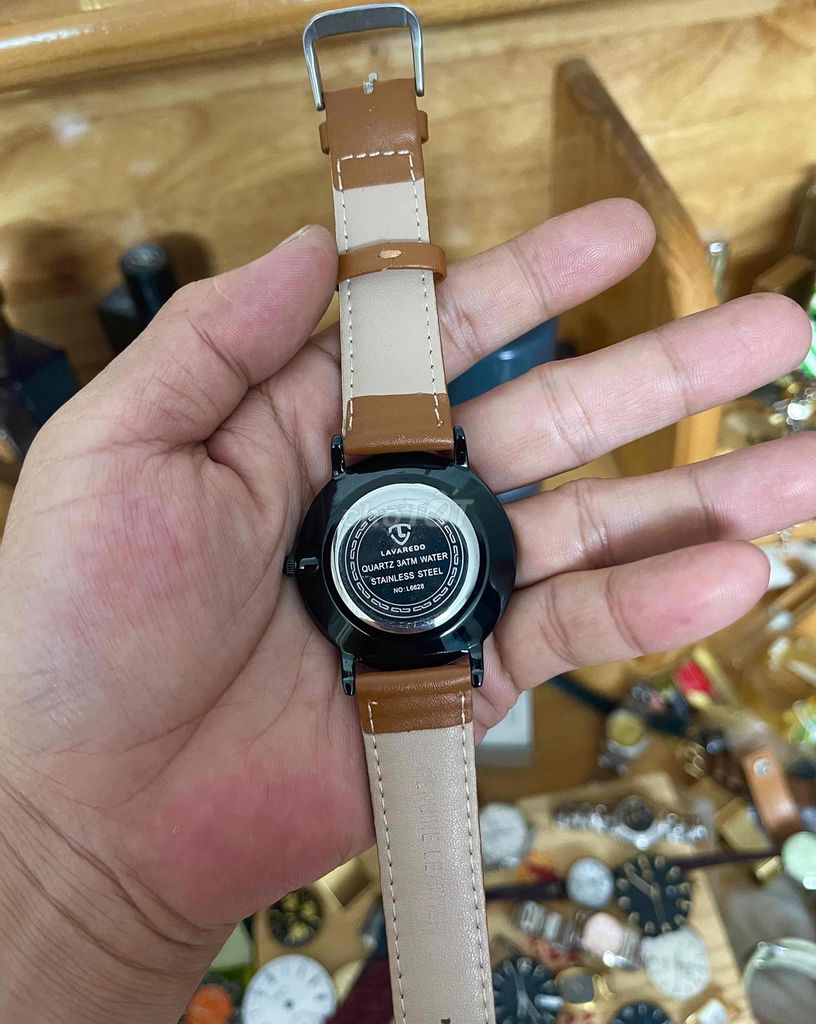In the ever-expanding world of manga fandom, the phrase read manga scan has become almost synonymous with access, community, and controversy. As fans worldwide seek to enjoy their favorite stories in the absence of official translations or availability, scanlations have emerged as a vital, albeit contentious, pillar of manga consumption. This article delves into the roots and rise of manga scanlations, the intricacies of their creation process, their ethical dilemmas, and their profound influence on the manga industry, while also exploring future trends and alternative ways to support original creators.
The Rise of Manga Scanlations: A Historical Overview
The phenomenon of manga scanlations—fan-translated manga scanned from Japanese sources and made publicly available—began in the late 1990s and early 2000s, paralleling the internet's rapid expansion. Early manga enthusiasts, often limited by their local markets and language barriers, started digitizing scans to share with a global community eager to access Japanese manga that was otherwise unavailable or delayed in localization. Initially, these efforts were made by small groups of dedicated fans working in their spare time, using basic tools to scan and translate pages, often with a passion-driven motivation rather than commercial intent.
Over the years, scanlation groups grew in sophistication and numbers, driven by demand and the lack of accessible official translations. During the rise of internet forums and file-sharing platforms, these groups facilitated worldwide access to a vast catalog of manga titles—many of which would have remained obscure or untranslated without their efforts. The community aspect of scanlations fostered a sense of camaraderie among fans and created a unique ecosystem that challenged traditional publishing norms. This rise, however, was not without controversy, as it ignited debates about intellectual property and the future of official manga publishing, shaping the complex landscape we see today.
 Hình minh họa: read manga scan – manga read online reddit
Hình minh họa: read manga scan – manga read online redditUnderstanding the Scanlation Process: From Raw Scans to Translated Pages
At its core, the scanlation process is a meticulous craft that involves multiple steps, requiring both technical skill and linguistic knowledge. It begins with the acquisition of raw scans, which are high-quality images taken directly from physical manga volumes or official digital sources. These raw scans — often called "raws" — serve as the foundation for the entire project; their quality directly affects the readability and final presentation of the translated manga.
The subsequent steps involve cleaning and editing the raw scans to remove imperfections, enhance readability, and prepare the images for translation. This includes removing background noise, adjusting brightness and contrast, and sometimes reflowing text boxes for better flow. Once the images are prepared, the translation team—the translators—work to convert the Japanese dialogue into their target language, often wrestling with idiomatic expressions and cultural nuances. After translation, typesetters insert the new dialogue into the images seamlessly, maintaining the artwork's aesthetic. The final stage involves QC (quality control), where the group reviews the pages for accuracy and consistency before sharing the completed chapters online. The effort behind each scanlation reflects a complex blend of artistic sensitivity, linguistic skill, and technical know-how.

The Legality and Ethics of Reading Manga Scanlations
The legal landscape surrounding scanlations is complex and murky. In many jurisdictions, creating, distributing, or even reading scanlations infringes on copyright laws, as these works are typically unauthorized reproductions of a creator’s original work. Despite this, many fans argue that scanlations fill an essential gap, especially when official translations are delayed, limited, or nonexistent. This creates a moral dilemma: should fans prioritize legal compliance or consider access and the cultural value of manga being disseminated worldwide? The tension lies in the fact that scanlations often sustain interest in manga communities, supporting the industry indirectly through increased popularity.
From an ethical perspective, strict copyright laws are designed to protect creators and publishers, ensuring they can profit from their work and continue producing content. However, critics of the current legal framework argue that fast-changing digital consumption habits, language barriers, and regulatory enforcement sometimes neglect the broader cultural exchange and appreciation fostered by scanlations. Ultimately, this debate hinges on whether one views scanlations as piracy or as a form of fan activism—an informal way to support manga culture and prompt industry change. Genuine concern exists on both sides, emphasizing the importance of balancing legal rights with fostering cultural exchange.
Where to Find High-Quality Manga Scanlations: A Reader's Guide
For avid manga enthusiasts seeking quality scanlations, the challenge often lies in distinguishing credible, well-translated, and ethically responsible sources from less reliable or poorly-made groups. Several communities and websites have gained reputations for maintaining high standards for translation accuracy, editing, and overall presentation. Dedicated manga forums and community sites like MangaUpdates, Discord groups, and specialized scanlation aggregators can serve as excellent starting points to discover reputable groups.
In addition to community-based sources, numerous online forums and social media platforms host active discussions about the best scanlations available. It's essential, however, to approach these sources carefully and consider the ethical implications of supporting certain groups. Many fans prefer supporting unofficial fan translation groups that emphasize quality and respect for original creators, even if this means waiting longer. The best approach is to seek out groups with transparency about their work, respect for original creators, and alignment with your language preferences. Remember, high-quality scanlations are a testament to the effort and talent of dedicated fans worldwide, making the reading experience more authentic and enjoyable.
The Impact of Scanlations on the Official Manga Industry
Despite being informal, scanlations have had a significant, sometimes paradoxical impact on the official manga industry. On one hand, they have democratized access to manga, bringing global popularity and recognition to series that might have remained niche in Western or other non-Japanese markets. This increased exposure sometimes prompts publishers and licensors to accelerate official translations and releases, understanding the demand for certain titles. In some cases, the success of manga online—fuelled by fan translations—has led to official adaptations, merchandise, and expanded licensing, further benefiting creators and publishers.
Conversely, scanlations are seen as a threat to the industry because they bypass the traditional sales channels, potentially reducing revenue for publishers and creators. This creates a tension between fan enthusiasm and economic sustainability. Many publishers see scanlations as eroding the value of their intellectual property, fearing that widespread unauthorized sharing may dissuade them from investing in localization efforts. As digital piracy remains a persistent issue, the industry continues to explore ways to offer accessible, legal digital editions with user-friendly platforms and worldwide reach, in hopes of curbing illegal scanlation practices while nurturing a global manga community.
Scanlation Groups: Their Role, Motivations, and Internal Dynamics
Scanlation groups are often composed of passionate individuals who hail from varied backgrounds but are united by a common love for manga. Their motivations vary—many are driven by a desire to share stories they love with a wider audience, foster community, or challenge perceived barriers within the manga industry. These groups tend to operate with a high level of organization, assigning roles such as scanning, translating, editing, typesetting, and quality control to members to streamline the process—a testament to their internal cooperation and shared goals.
However, these groups often operate in an environment of internal tension and external scrutiny. Motivations can shift over time from purely fan-driven to more commercially aware, or vice versa, sparking debates about ethics and sustainability. Some groups face burnout due to the labor-intensive nature of their work, while others strive to improve their translation quality and ethical standards. Despite often remaining anonymous or semi-anonymous, these groups hold significant influence in shaping the accessibility of manga worldwide. Their internal dynamics—ranging from cooperation to conflict—mirror broader tensions between fan activism and industry interests, making their role both fascinating and complex.
Technological Advancements in Manga Scanning and Translation
Technology has played a pivotal role in transforming the scanlation landscape. From the advent of image editing software like Photoshop to sophisticated OCR (optical character recognition) tools, the process of cleaning, translating, and typesetting has become faster and more precise. Additionally, online collaboration platforms, cloud storage, and real-time communication tools enable geographically dispersed teams to work efficiently together, often completing chapters within days or even hours.
Emerging technologies—like AI-based translation and automatic typesetting—hold the potential to revolutionize the process further. While current AI tools are still imperfect and require substantial human oversight, they already assist in speeding up initial translations or text extraction. Moreover, advancements in high-resolution scanning and image enhancement have improved the quality of raw files, making the entire pipeline more seamless. As these tools evolve, they might lower barriers for new groups, increase scanlation volume, and perhaps even challenge legal frameworks, underscoring the need for ongoing discussions about ethics, quality, and accessibility.
The Future of Manga Scanlations - Trends and Predictions
Looking ahead, the future of manga scanlations appears intertwined with technological innovation, industry adaptation, and evolving legal landscapes. Given the rise of official digital platforms—such as VIZ, Manga Plus, and Shonen Jump—it is likely that official releases will become more accessible and affordable, gradually reducing the demand for unauthorized scanlations. However, the continued growth of fandom communities worldwide suggests that a core group of enthusiasts may persist in their pursuit of free, rapid, and unfiltered access to manga.
Furthermore, trends indicate a potential shift towards more ethically and legally driven fan translations, emphasizing transparency, proper licensing, and collaboration with publishers when feasible. Additionally, community-driven efforts might focus on better quality control, localization, and cultural translation, emphasizing respect for original creators while honoring fan demands. Ultimately, as manga becomes more globalized and digital platforms improve, the dynamic between scanlations and official releases will likely evolve into a hybrid model—balancing accessibility, legality, and fan engagement.
Arguments For and Against Manga Scanlations - A Balanced Perspective
Supporters argue that scanlations serve as a vital lifeline for manga fans in regions where official releases are unavailable or prohibitively expensive. They emphasize cultural exchange and the democratization of access that scanlations facilitate, often acting as a catalyst for industry growth by expanding fandoms and popularity. Many fans view scanlations as a form of fan activism—glorifying the availability of manga to underserved communities and advocating for more inclusive, global manga representation.
Opponents, however, contend that scanlations undermine the industry by depriving publishers and creators of revenue, potentially discouraging investment in localization efforts. They argue that unauthorized sharing constitutes theft of intellectual property and that reliance on scanlations may result in lower quality and inaccurate translations that distort original storytelling. Balancing these viewpoints involves recognizing the importance of supporting creators and respecting copyright while fostering accessibility—perhaps through advocating for better official digital offerings as a more sustainable and ethical solution.
Supporting the Official Manga Industry - Alternatives to Reading Scanlations
One of the most effective ways to support manga creators and publishers is to choose official channels whenever available. Many publishers now offer digital editions with reasonable prices and user-friendly platforms that cater to a global audience—services such as VIZ’s Manga Plus, ComiXology, and official publisher apps. Subscribing or purchasing these official releases ensures that creators are compensated for their work, funding future projects and enabling continued industry growth.
Additionally, fans can push for industry change by advocating for broader licensing, rapid official releases, and affordable digital options. Engaging with and supporting official translations on social media or review platforms also helps to legitimize these channels. By choosing legal paths to enjoy manga—such as subscriptions, purchases, or even supporting crowdfunded projects—fans can strike a balance between their passion for manga and ethical responsibility, ensuring that the industry thrives, and creators are valued for their toil and artistry.
Conclusion
The landscape of read manga scan is complex and multifaceted, shaped by passionate fans, technological progress, legal frameworks, and industry dynamics. While scanlations have played a crucial role in fostering access and global appreciation for manga, they pose significant ethical and legal questions that continue to challenge the industry’s future. The intricate process of producing high-quality scanlations demonstrates the dedication of fan groups, yet calls for a balanced approach that respects creators’ rights. As official platforms expand and evolve, fostering a sustainable and lawful environment for manga enthusiasts, it remains key for fans and industry stakeholders alike to collaborate in supporting creators, respecting intellectual property, and ensuring manga’s cultural legacy endures for generations to come.





